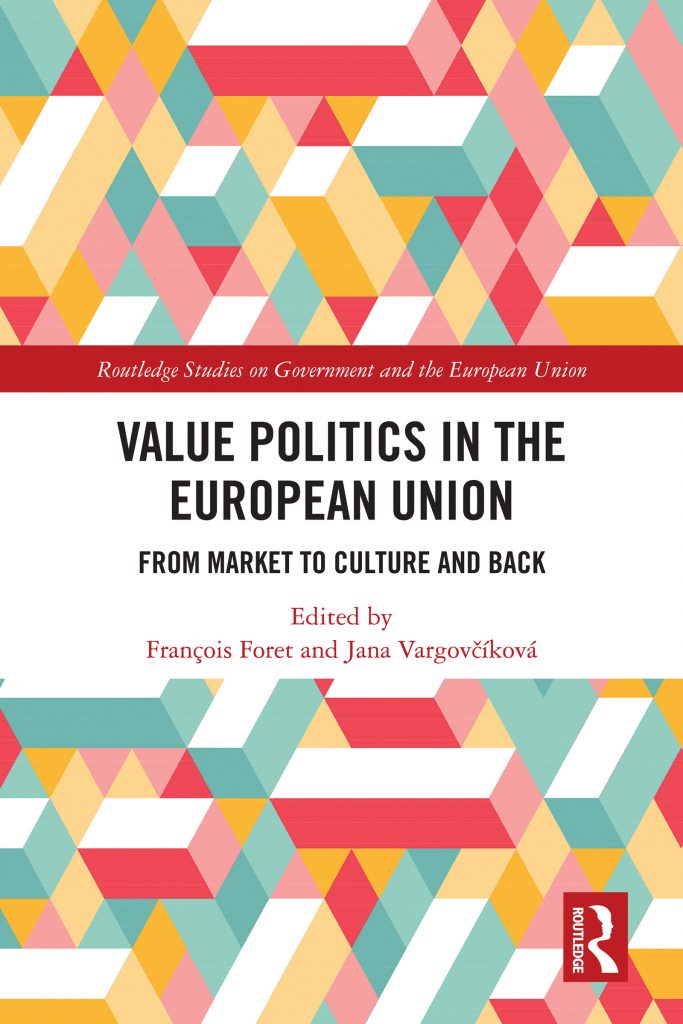[BOOK CHAPTER] Calligaro, O., (2021). European Identity between Culture and Values. From European Heritage to « our European Way of Life ». In Foret, F. & Vargovčíková, J. (Eds.), Value Politics in the European Union – From Market to Culture and Back (1st Ed., pp. 133-150), Routledge.
BOOK ABSTRACT
This book explores what drives value politics and the way in which it redraws political conflict at EU level.
Based on case studies and analyses of statistical data, the book shows what the uses and roles of values have been at EU level over the past decades in both market-related policies and in identity, cultural and morality policies. It challenges the common assumption that the latter is more driven by value conflicts. The research shows the intrinsic similarities between all policy areas regarding the agency and limits of values as drivers of change or continuity. It argues that European values are a broad and flexible symbolic repertoire instrumentalised to serve as a resource for mobilization, legitimation/delegitimation, the conquest and conservation of power.
This book will be of key interest to both scholars and students in European studies/politics, comparative politics, public policy, political theory, sociology and cultural studies, as well as appealing to professionals of European affairs within and around the EU institutions.
CHAPTER ABSTRACT
The institutions and founding texts of the emerging European Community mainly described European identity in terms of values: democracy, rule of law, human rights. These values, conceived as universal, are not distinctively European and as such not sufficient to substantiate a European identity. Since the 1970s, the celebration of European culture and cultural heritage has been a way for various European institutions and political actors to proclaim and illustrate European values. But while the scope of values enshrined in the European Union (EU) legal order was widening, the growing diversity of the EU’s population due to enlargements and international migrations has repeatedly posed the question of the EU’s boundaries as a community of values. Is the European ethos congruent with European culture and hence the product of specific cultural and historical backgrounds, or does a value-based European identity remain essentially inclusive for newcomers? This chapter explores the evolving answers given to this question from the 1970s until today by analysing the respective role and weight given to culture and values in the EU’ institutional approaches to European identity.
How to cite this chapter:
Calligaro, O., (2021). European Identity between Culture and Values. From European Heritage to « our European Way of Life ». In Foret, F. & Vargovčíková, J. (Eds.), Value Politics in the European Union – From Market to Culture and Back (1st Ed., pp. 133-150), Routledge. https://doi.org/10.4324/9781003153863
